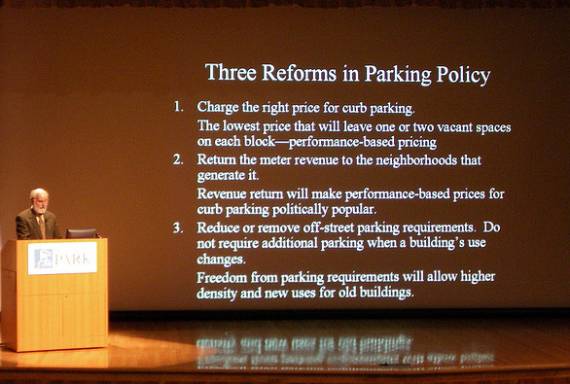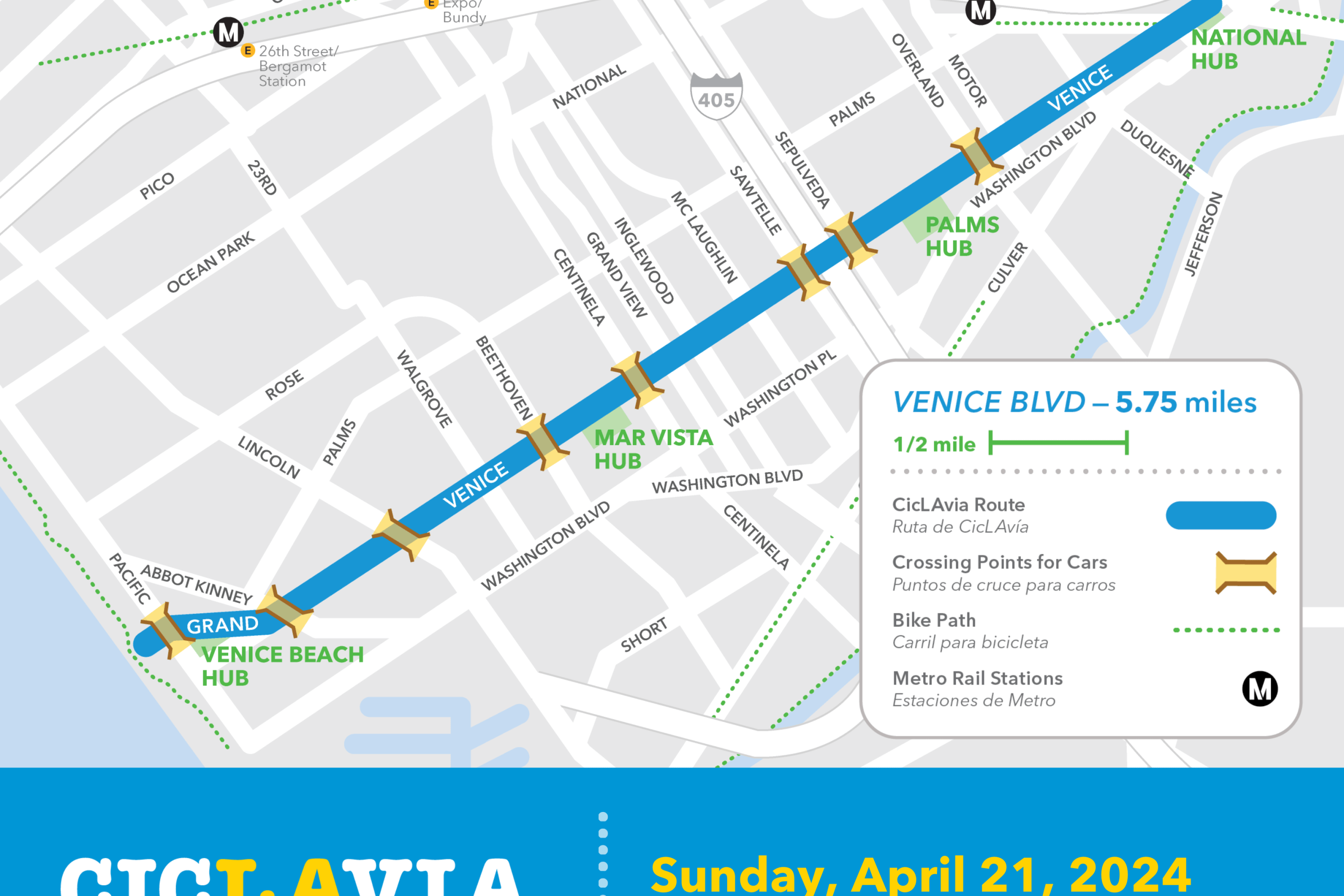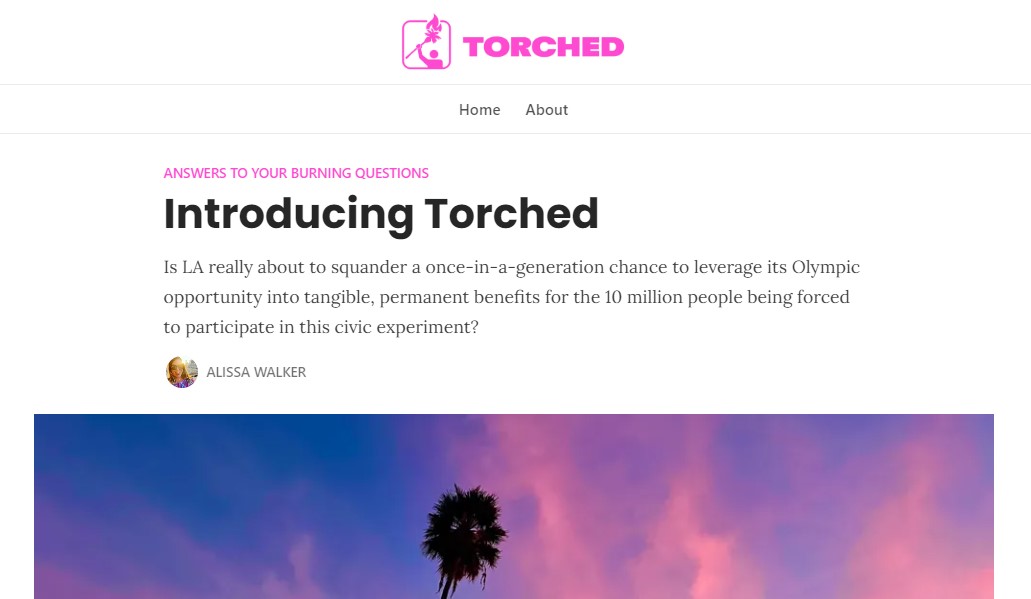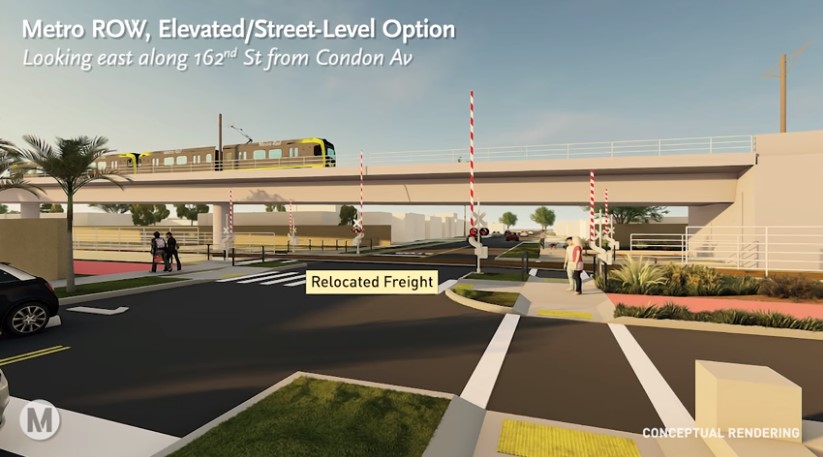Misunderstanding of Shoupian Theory Leads to Uninformed Attacks
3:13 PM PDT on October 19, 2010

Memo to the City of Los Angeles: stop trying to ruin Donald Shoup for the rest of us.
Back in 2008 and early 2009, city officials claimed to be following the teachings of the UCLA professor and Parking Rock Star/Guru when it announced increases in parking meter fees from throughout the city. This has led to a misunderstanding of Shoup's teachings throughout the Southland. Instead of a complex urban theory where funds raised from increased revenues spur redevelopment and lead to a reduction in local vehicle miles traveled, L.A.'s officials recognized Shoup's theory as "charge more for parking."
This fallacy, that the City of Los Angeles is somehow following Shoup's guidelines for parking and urban planning was on display in an otherwise sparkling profile of Shoup in this Saturday's Los Angeles Times.
Cities are starting to listen. Los Angeles, San Francisco, Redwood City, Glendale, Ventura, Portland, Ore., and the District of Columbia are among those implementing or contemplating changes to hew more closely to Shoup's vision.
But Los Angeles isn't really following the concepts outlined in Shoup's 2005 tome "The High Cost of Free Parking," they're just raising rates. At the 2010 StreetSummit, Shoup himself distanced himself from L.A.'s parking schemes and even argued that there are many places where metered parking fees are too high.
In the picture at the top of the article, we can see Shoup's three top concepts for parking reform, let's see how the city is doing.
1. Charge the right price for curb parking. The lowest price that will leave one or two vacant spaces on each block - performance based pricing.
According to Shoup himself, the city isn't doing a very good job of this. After watching a Shoup presentation last March, I wrote:
First, Los Angeles almost never charges an appropriate rate for street parking. Shoup notes that it's not uncommon to see a street with full meters and no place for a new driver to park their car, and then walk a block to see empty meters. The basics of supply and demand will tell you that one street is charging too much for meters and another not enough. Shoupian parking theories are a lot more complicated than "let's raise rates," and the city's clumsy handling of last year's raises certainly didn't qualify.
In other words, the city isn't meeting the grade.
2. Return the meter revenue to the neighborhood that generated it.
Nope, the city uses meter money to plug a hole in the general fund.
3. Reduce or remove off peak parking requirements.
There is almost no inertia to reduce parking requirements for development. Just look at the enormous parking garages that seem to spring up next to every Transit Oriented Develop highlighted by Metro.
Unfortunately, this misunderstanding of Shoup's theory leads to emotional attacks that aren't reality based. And when there's an opportunity for someone to make a research-free attack on someone arguing that drivers should pay their fare share of the public's cost for their transportation decisions, City Watch columnist Charles Tarlow will be there.
Back in the spring of 2008, Tarlow went on a one person crusade against Congestion Pricing on Los Angeles' freeways. Tarlow didn't let the reality that where congestion pricing has been tried it has won the approval of all economic classes in the region stop him from arguing that charging drivers for congestion free trips is a scam to benefit the rich.
Today, Tarlow argues against Shoupian theory because its asking drivers to sometimes pay more to temporarily store their private property on public streets. Tarlow doesn't interrupt his rant to talk about the public benefits of true Shoupian theory beyond the benefit for drivers of having more access to meters. Instead, following the lead of the Times' and politicians such as then Transportation Committee Chair Wendy Greuel, he boils down the entire "Cost of Free Parking" to:
Sadly, parking is a serious problem in our city and “Shoupdog” is only offering an exclusionary solution to our very public problem. Raising the price of parking reserves that public resource for those who can afford it and takes parking away from everybody else.
Who would do such a thing?
As with his rants against congestion pricing, Tarlow is wrapping his argument in class warfare and claiming the mantle of supporting the car-owning poor. As with congestion pricing, actual poor people would benefit most from Shoupian theory in a couple of ways.
The most obvious way is that a city that charges an appropriate rate for on-street parking and reinvests that money in the community will most likely have a thriving transit system. For example, Boulder, Colorado pays for its award winning rapid bus system with parking meter fees (amongst other things). Working poor in Boulder have a lot more transportation options than they would if Boulder embraced the Tarlow theory that car ownership is something that should be encouraged at the expense of everything else for people of all economic incomes.
Secondly, by eliminating parking requirements for new development, the cost of parking can be removed from the cost of renting or owning improved housing. In other words, people who can't afford a car or don't want to drive one won't be paying for a parking space they don't want.
Stay in touch
Sign up for our free newsletter
More from Streetsblog Los Angeles
Automated Enforcement Coming Soon to a Bus Lane Near You
Metro is already installing on-bus cameras. Soon comes testing, outreach, then warning tickets. Wilshire/5th/6th and La Brea will be the first bus routes in the bus lane enforcement program.
Metro Looks to Approve Torrance C Line Extension Alignment
Selecting the relatively low-cost hybrid alternative should help the oft-delayed South Bay C Line extension move a step closer to reality




